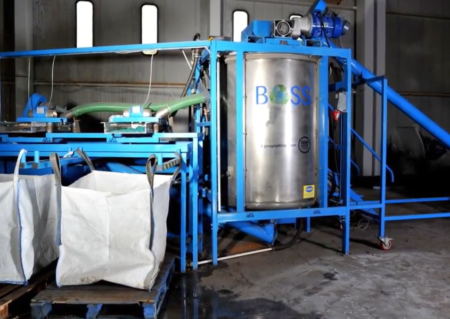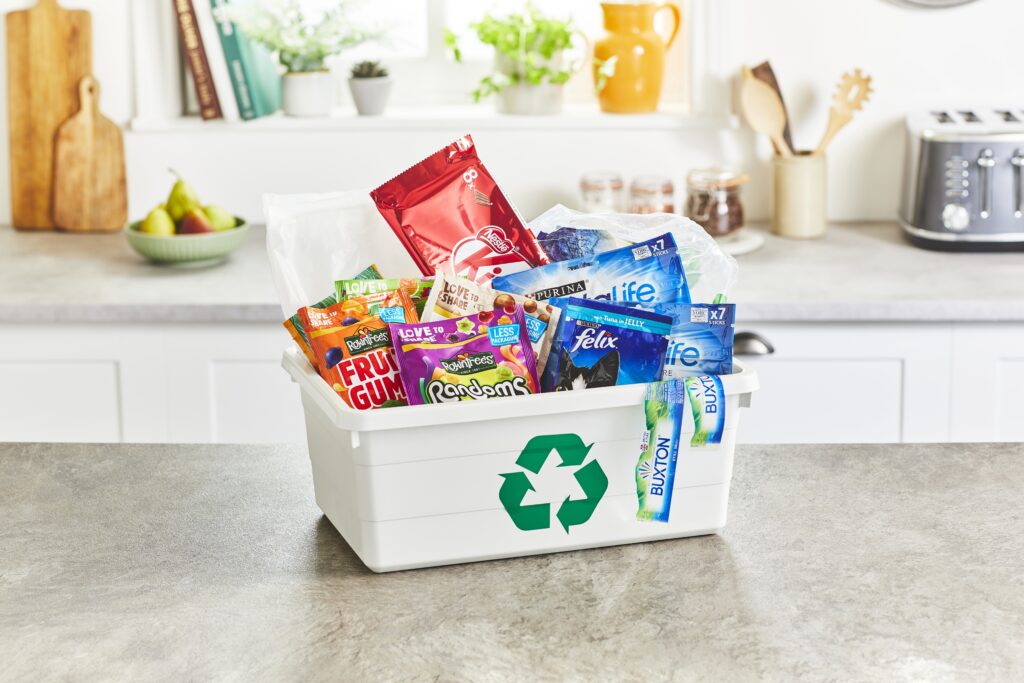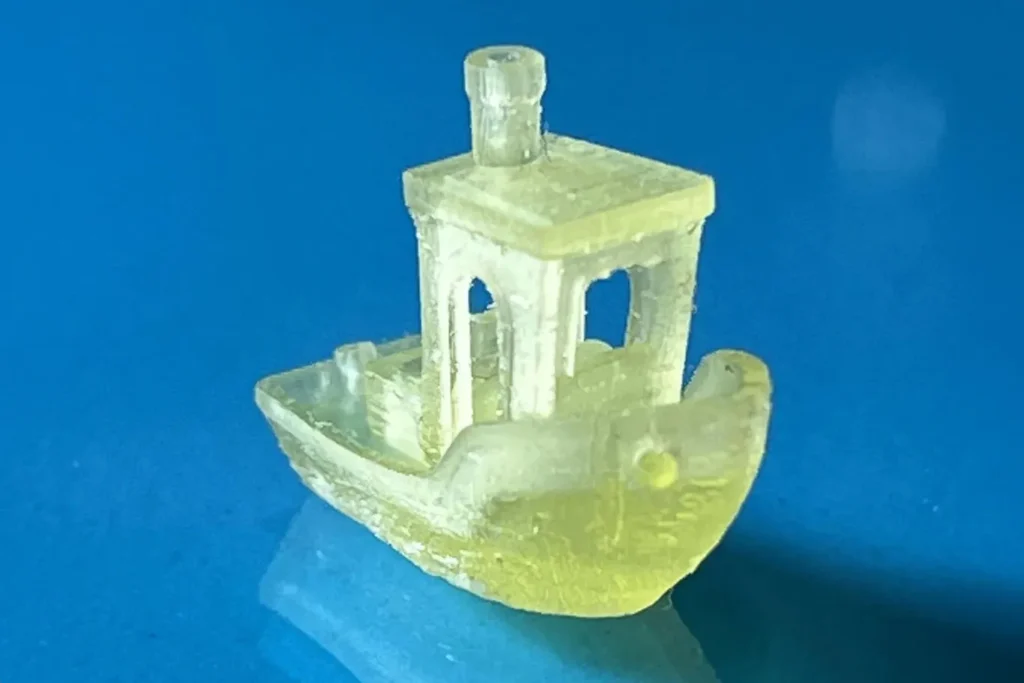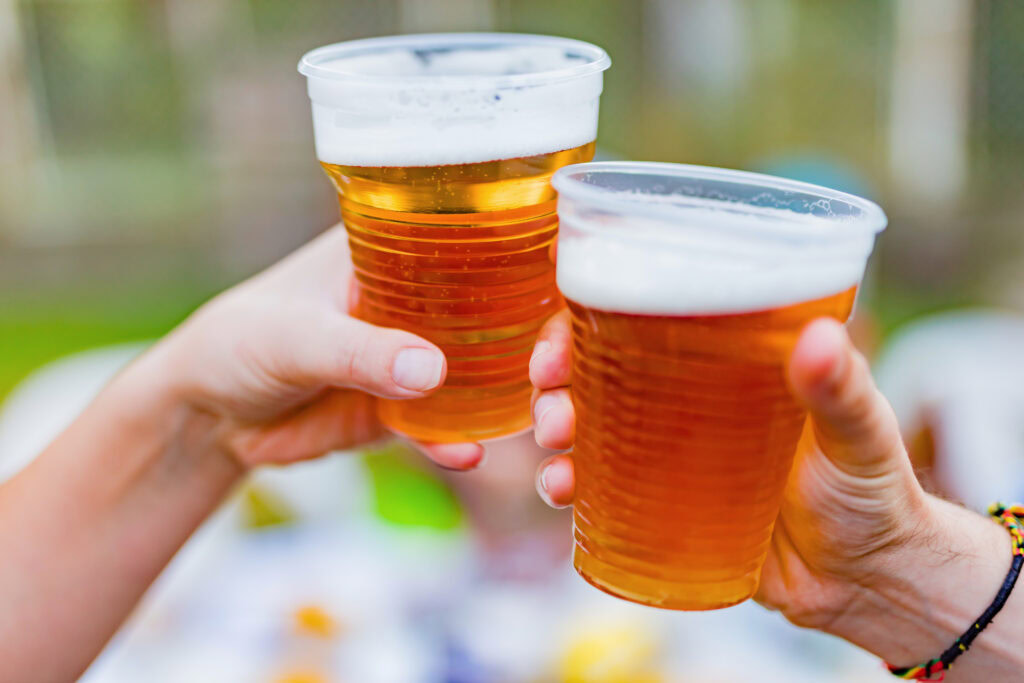Impact Recycling has plans for a plant in Newcastle to open in late summer 2024. The company says its technology, known as Baffled Oscillation Separation System (BOSS), can process flexible plastics such as chocolate and crisp packaging and produce pellets which can be used to replace virgin plastic films in construction and agriculture, “as well as or to make bin bags”.
The site in Newcastle will have the capacity to process 25,000 tonnes of material, the company says.
Wrappers
Nestlé explained that packaging such as KitKat wrappers, Purina pet food pouches, Rowntree confectionery sharing bags and Nestlé Cereal bags, will be collected from major supermarket collection points so they can be recycled at the Newcastle site.
Sokhna Gueye, head of packaging at Nestlé UK & Ireland, said: “I am thrilled to be joining forces with Impact Recycling and helping fund this new plant in Durham. At Nestlé, we are dedicated to ensuring our packaging can have multiple lives and doesn’t end up as waste in landfill. Supporting innovative technologies like this is just one of the many steps we are taking towards achieving this goal.

“In the UK and Ireland, our efforts continue at pace to ensure as close to 100% of our packaging is designed for recycling by 2025, and we continue to work towards all of our packaging being recyclable or reusable. It is fantastic to see our packaging given a second life, and we are looking at many partnerships to help encourage the collection and recycling infrastructure in the UK.”
David Walsh, the chief executive of Impact Recycling, added: “We are delighted to partner with Nestle on this initiative to develop a 25,000-tonne commercial recycling plant for post-consumer flexible plastic. Without the funding from Nestlé this development would not have been possible.
“Through this funding, Nestlé demonstrates its unwavering commitment to innovation and the pursuit of sustainable solutions for plastic packaging.”
Funding
Impact Recycling has already received £4.1 million from the government-funded UK Research and Innovation (see letsrecycle.com story) and £2 million from private investment consultancy firm IW Capital (see letsrecycle.com story).
The company was also part of Project Beacon, this was a plan for three three companies – PI Polymer Recycling, Recycling Technologies and Impact Recycling.- to work together to “chemically recycle” plastics to make new material or other chemical products.
This received funding from the Scottish government. Recycling Technologies has now dissolved and the organisers say Project Beacon is ongoing.
Yes Recycling
Nestlé outlined that the funding will be in the form of a loan.
The company previously provided Yes Recycling with a ‘pre-investment’ of £1.65 million for the firm’s failed flexible plastic recycling facility in Glenrothes, Fife (see letsrecycle.com story).
The company entered administration in April 2023, around 18 months after the investment (see letsrecycle.com story).
Impact recycling
Impact Recycling was formed by plastic manufacturers Impact Solutions as the company moved towards “promoting a circular economy”.
Impact Recycling uses mixed plastics as feedstock for a “separation technology” it has developed. Known as Baffled Oscillation Separation System (BOSS), the process is an attempt to recycle mixed polyolefins.
Components of post-consumer mixed plastic waste are separated to recover two consistent streams of plastic – polyethylene and polypropylene – each with over 95 per cent purity, according to Impact Recycling.
The company said that once it goes through the process, the plastic can be used in paint pots and cars, while other outlets for its recycled plastic include drainage pipes.
Nestlé added that the technology sorts the waste plastics by spinning them in water meaning that different materials either sink or float, depending on their density. This makes it easier to take the correct materials to be recycled.










Subscribe for free